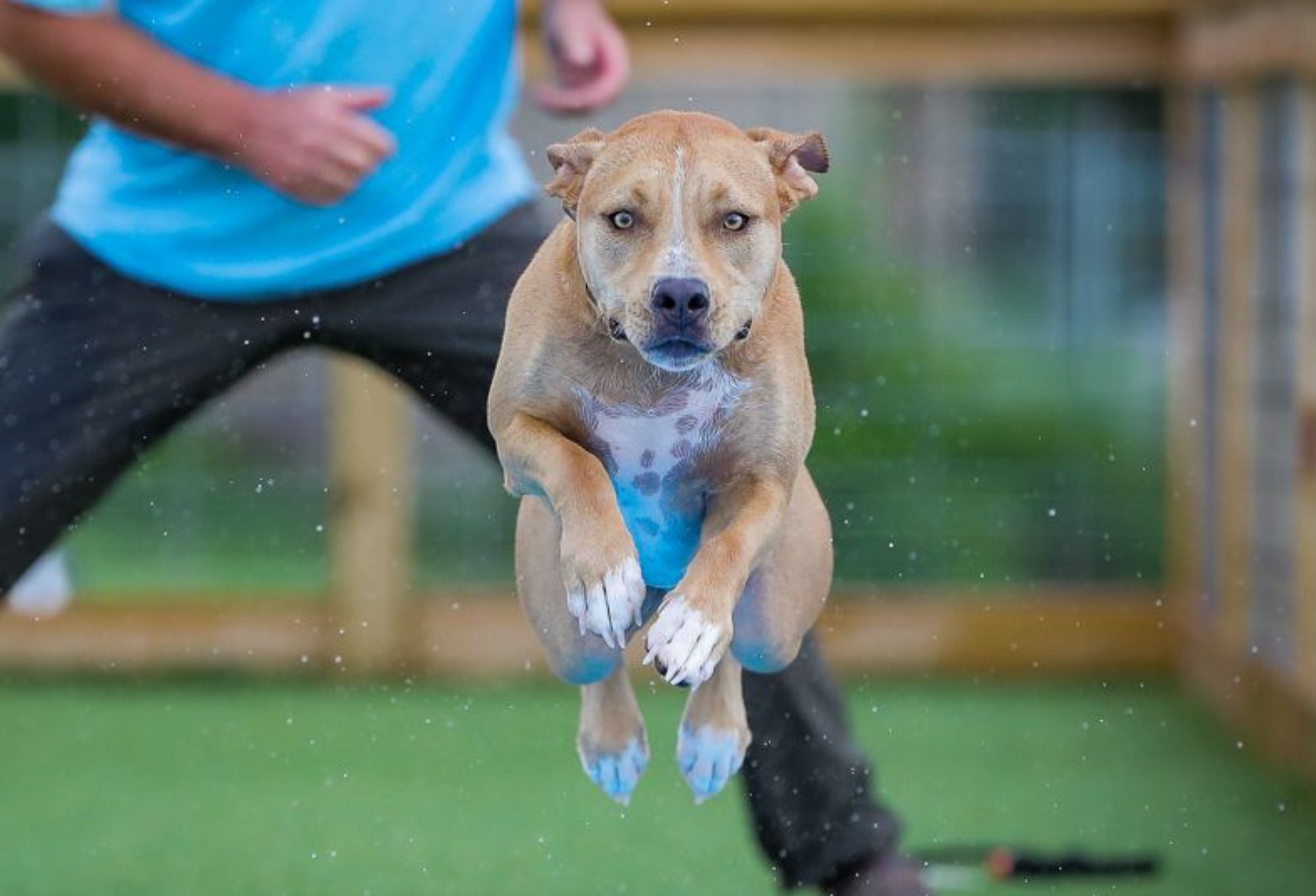Learning about sports massage.
During my extensive career of working, training, and competing the equine athlete and recently the canine, I have seen and felt the negative impact of malfunctioning soft tissue areas; even in my own body. Muscle spasms and cramps hindering the flow of free energy, preventing joints from working properly, limiting swinging motions (through the back), balance (with the neck), or powerful kicks (using the hamstrings). All of these result in poor biomechanics which will eventually stress the body, wearing it down.
The benefits of frequent bodywork and massages are scientifically proven, they fundamentally originate from ancient delivered treatment techniques and have developed over centuries based on real time experiences. Being part of the dock diving circuit, which features a very high body impact and reactivity sport and my moral and ethical commitment towards my partner to do whatever necessary to support his soundness has led to my decision to complete a Certified Canine Massage Therapist (CCMT) program.
I found that in Becky Brandenburg’s canine sports massage course. It was just what I was looking for: in-depth details, passion developed through decades of experience and successful treatments across a large variety of clients, and a sophistication as seen by the inclusion of all body areas. It is an intense hands-on course.
When I took Becky’s course, there was a pack of seven rescued dogs with various body shapes and with very different personalities. For me, this set Becky apart from any other options out there. Becky’s teaching style was rational, succinct, and accompanied by many visual study materials that were made available. For my final exam of the course, I worked with her own dog, a 4-year-old flat coat Retriever named Mabel. Becky chose this dog for me and with that she expressed great confidence and trust in my work since that particular dog is quite long haired and has a muscular and skeletal landscape that is not very refined, making the act of locating the exact areas to treat her a truly difficult test. Mabel is also mentally very aware of her treatment, her eyes and breathing patterns easily reflecting the skill level of the therapist. To those who really know me, you know that this is the exact kind of animal with which I love to work!
Needless to say, my session with Mabel was very fluent and natural, filled with positive energy. There are a few ways of assessing a successful treatment, and Mabel exhibited semi-sleeping, quiet eyes, and a calm breathing pattern. All of these create a sense that the dog is totally with me.
Passing Becky’s course requires a lot of determination, feel, and technical skill. The knowledge of both biomechanics and the functionality of muscular and skeletal systems is fundamentally important. Equally essential is the understanding of animal behaviorism, body language, the ability to communicate through hands and body. To be successful as a CCMT boils down to the ability to feel, locate, and treat.
Thank you, Becky Brandenburg and thank you, Mabel for confirming what your mom knew all along!


